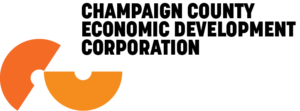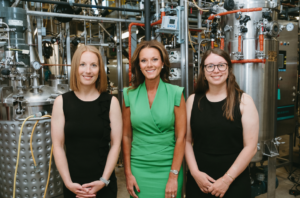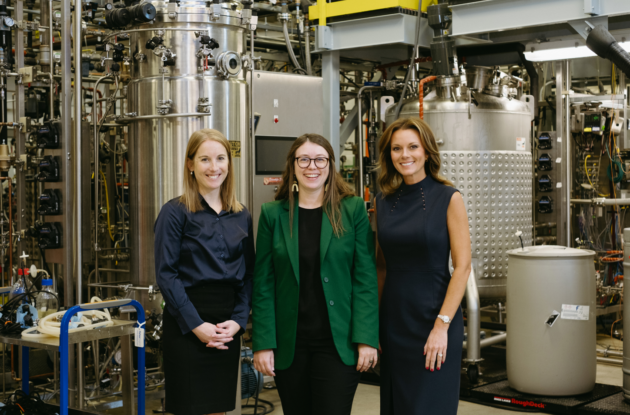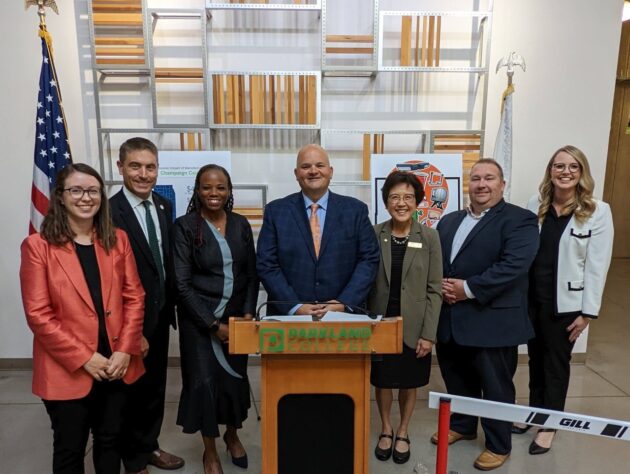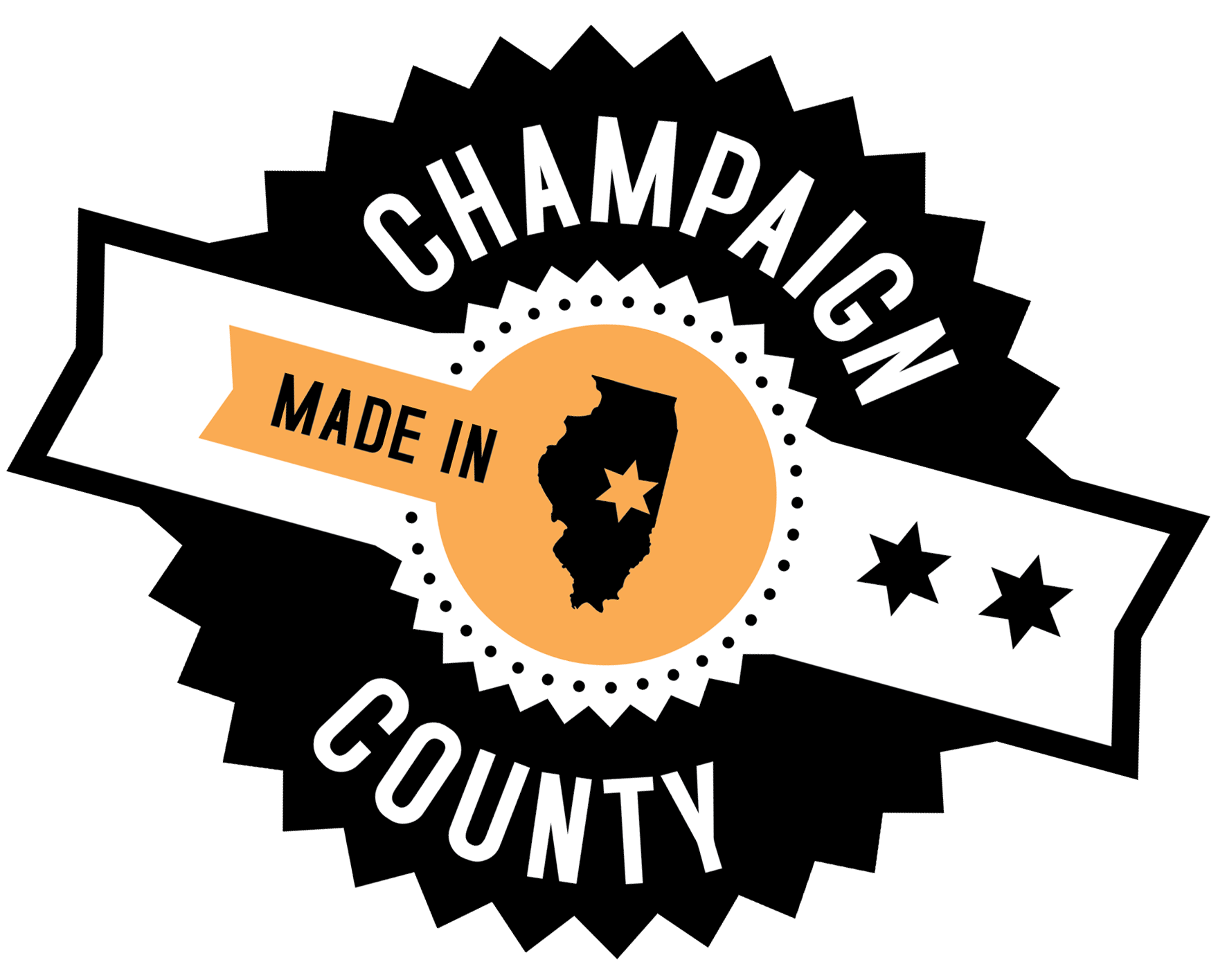July 2, 2024
The Illinois Fermentation and Agriculture Biomanufacturing (iFAB) Tech Hub has been awarded approximately $51 million from the Tech Hubs Program through the Department of Commerce’s Economic Development Administration. The iFAB consortium, led by the University of Illinois Urbana-Champaign, will receive a Phase 2 Implementation grant to position Central Illinois as a global leader in biomanufacturing and precision fermentation, supporting national security, economic growth, and job generation.
“Securing this grant is a testament to the hard work and collaboration of our partners and the strategic importance of leveraging biology as a manufacturing technology of the future — we are thrilled to lead this charge in making Central Illinois the heart of biomanufacturing in the U.S. and beyond,” said Beth Conerty, iFAB regional innovation officer and associate director of business development at the Integrated Bioprocessing Research Laboratory, part of the College of Agricultural, Consumer and Environmental Sciences at U. of I.
Authorized by the bipartisan CHIPS and Science Act of 2022, the EDA designated 31 Regional Innovation and Technology Hubs that qualified for a Phase 2 Implementation grant last October. Today the EDA unveiled that iFAB is one of 12 Tech Hub Designees selected for implementation funding.
“The Tech Hubs designation and Phase 2 funding is just the beginning — we are poised for continued growth and investment, with a strong focus on expanding our workforce, enhancing entrepreneurship, and further developing our technological capabilities,” said iFAB leader Carly McCrory-McKay, executive director of the Champaign County Economic Development Corporation. “The commitment and collaboration of our partners — from higher education and government agencies to industry leaders and startups — has been instrumental in reaching this point. Their expertise, resources, and innovative spirit are key to our strategy as we drive forward these pivotal initiatives. iFAB’s future is bright, and together, we are setting new standards for what can be achieved in biomanufacturing right here in Central Illinois.”
The EDA Phase 2 grant will fill gaps to support the wide spectrum of biomanufacturing businesses that are developing precision fermentation innovations to create zero-emission, high-value products from agricultural commodities. By harnessing microbes to transform local feedstocks — mainly corn and soybeans — into a variety of goods such as textiles, biofuels, food ingredients, and more, these efforts could revolutionize domestic manufacturing. The precision fermentation industry is projected to reach $200 billion by 2040, with the potential to generate one million jobs by 2030.
This funding announcement follows strategic discussions in Washington, D.C., where the importance of biomanufacturing for national security was emphasized, as well as Central Illinois’ unique capabilities to position itself as the epicenter for biomanufacturing in the U.S.
“Central Illinois is uniquely positioned to lead the way in biomanufacturing, leveraging an ecosystem of industry leaders, innovative startups, world-class R&D, scalable infrastructure, abundant feedstock production, and robust transportation networks,” said iFAB leader Nicole Bateman, president of the Economic Development Corporation of Decatur & Macon County. “This landmark investment in iFAB’s vision and infrastructure will allow the U.S. to rival Europe and China, who have been investing heavily in this space.”
Ultimately, the Phase II Implementation grant will strengthen iFAB’s ability to attract and support companies that join the growing biomanufacturing ecosystem in Champaign, Piatt, and Macon counties.
Bioprocessing expansion: The EDA grant will help realize a $40 million expansion of IBRL, which will include a 1500-liter fermenter capacity upgrade.
Production line expansion: Primient and Synonym will receive funding to achieve a fermentation capacity of 13,000 liters; ADM will use Phase 2 funding to upgrade their precision fermentation facility to 80,000 liters. This significant investment solidifies Decatur’s role as a key player in Central Illinois’ expanding biomanufacturing corridor.
iFAB Tech Hub Management: The EDA grant will support the iFAB Tech Hub’s management, formalizing leadership roles for Conerty, McCrory-McKay, and Bateman as well as Laura Appenzeller, U. of I. assistant vice chancellor for innovation and Research Park executive director, and Kim Kidwell, U. of I. associate chancellor for strategic partnerships and initiatives. Brian Jacobson, IBRL’s associate director of strategic operations, will serve as the program manager for infrastructure development. iFAB will hire additional staff to support these efforts.
iFAB is supported by the coalition Innovate Illinois, a strategic initiative led by Governor J.B. Pritzker and co-chaired by U. of I. Chancellor Robert J. Jones.
“Today’s EDA grant not only acknowledges but actively fuels our mission to establish Central Illinois as a pivotal biomanufacturing player on the global stage. With these new resources, we are equipped to accelerate our initiatives, ensuring that our region not only meets but sets the gold standard for biomanufacturing innovation,” Jones said. “This partnership exemplifies how the University of Illinois Urbana-Champaign can leverage its expertise and resources to fuel progress and prosperity right in our backyard.”
About iFAB
The Illinois Fermentation and Agriculture Biomanufacturing (iFAB) Tech Hub is poised to become the global leader in precision fermentation and biomanufacturing — an industry expected to grow to $200 billion over the next 15 years. Leveraging biology as a manufacturing technology of the future, iFAB is uniquely uniting world-class R&D, industry leaders, innovative startups, scalable infrastructure, abundant feedstock production, unparalleled transportation networks, and strong relationships with corn and soybean suppliers within a 51-mile radius. This unique lab-to-line approach establishes the iFAB region (Champaign, Piatt, and Macon counties) as the preeminent destination for the biomanufacturing industry.
